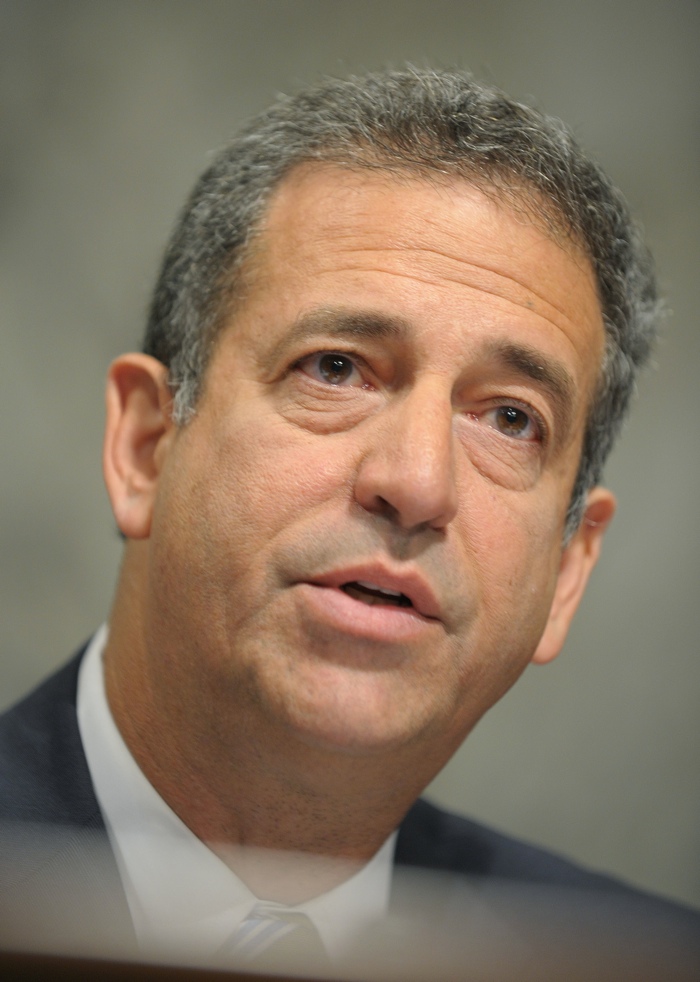Progressive backers of financial reform are pushing Sen. Russ Feingold (D-WI) to reconsider his protest vote against imposing tougher rules on Wall Street.
Feingold opposed the Senate’s regulatory reform bill because in his view, by lacking provisions that explicitly limit the size of major financial institutions, it didn’t go far enough. But with House and Senate negotiators now ironing out the differences between their two bills, progressives see an opportunity to strengthen the final legislation…if only Feingold considers changing his vote.
Americans for Financial Reform and the Progressive Change Campaign Committee are separately pushing Feingold to reconsider his vote provided two key provisions, strengthening the bill survives. PCCC members are petitioning Feingold to say that he’ll vote yes, if and only if tough derivatives regulations remain in the legislation, and negotiators add a strong version of the so-called Volcker rule to the bill.
“Some senator will be the deciding vote on this bill — will it be a Republican who wants less Wall Street accountability or a progressive like Feingold who wants more?” says PCCC co-founder Aaron Swartz. “By saying he would vote yes on the final bill if strong versions of the Lincoln and Volcker Rules are adopted, Feingold could change the dynamics of the negotiations, change history, and score a real victory for Main Street over Wall Street.”
Why is Feingold such a pivotal player? As I reported yesterday, reformers and Hill staff are currently contending with the fact that Sen. Scott Brown (R-MA) is the man with the most power over the bill right now. He cast the 60th vote for reform, giving him tremendous leverage which he’s been using to push for carve outs in the Volcker rule. (The Volcker rule, named after former Fed Chair Paul Volcker, would put serious restrictions on banks’ ability to speculate with their profits.)
If Feingold were to say he’d vote for the bill under the condition that the Volcker rule survives unmolested, he’d take Brown’s influence away, and flip it. Or at the very least, he’d give Democrats on the conference committee a choice between including a loophole-ridden version of the Volcker rule or a more pure version.
Now, Feingold has been pretty clear that his principle objection to the legislation is that it doesn’t explicitly limit the size of big firms.
“The bill does not eliminate the risk to our economy posed by ‘too big to fail’ financial firms, nor does it restore the proven safeguards established after the Great Depression, which separated Main Street banks from big Wall Street firms and are essential to preventing another economic meltdown,” Feingold said last month. “The recent financial crisis triggered the nation’s worst recession since the Great Depression. The bill should have included reforms to prevent another such crisis. Regrettably, it did not.”
And though reformers view the Volcker rule as a crucial provision, the rule itself does not put a ceiling on the size of large, systemically significant financial firms. Then again, the choice before Feingold will be pretty clear: The bill will pass either way. The question is whether it does so in as robust a form as possible.
The script PCCC members are using to pressure Feingold is below:
Here’s what to say:
Hi, this is John Smith from [CITY].
I’m calling about financial reform. I’d like to thank Sen. Feingold for standing up for real reform and urge him to vote for the final bill if Sen. Blanche Lincoln’s proposal and a strong Volcker rule are included. Preventing big banks from gambling with my money is critical to reform and deserves his support. That risky gambling is what leads to bailouts.
Will Sen. Feingold support a final bill if it includes strong Lincoln and Volcker rules?
[After they answer.] Great. Thanks for passing this along. I look forward to Mr. Feingold fighting for these critical reforms.










